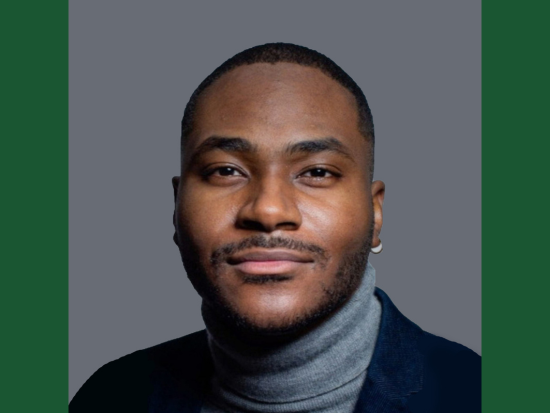 If you’ve ever wondered who fuels our department’s teaching, research, and creative problem-solving, look no further than Mississippi’s native son, ‘Bill Nye’-enthusiast, and champion to improve outcomes for all patients – Dr. Demario Overstreet.
If you’ve ever wondered who fuels our department’s teaching, research, and creative problem-solving, look no further than Mississippi’s native son, ‘Bill Nye’-enthusiast, and champion to improve outcomes for all patients – Dr. Demario Overstreet.
Just the Facts
- Joined the UAB Department of Surgery in August 2023 as an Assistant Professor in the Division of Gastrointestinal Surgery.
- Earned a Bachelor of Arts and Master of Science from Alabama Agricultural & Mechanical University (AAMU), a historically Black college and university (HBCU).
- Received his Ph.D. in Behavioral Neuroscience from UAB.
- Completed a pre-doctoral fellowship in the NIH AHRQ-funded Health Services Research T32 Program (2018–2021).
- Completed a postdoctoral research fellowship at Harvard Medical School and Brigham & Women’s Hospital in the Department of Anesthesiology, Perioperative, and Pain Medicine.
In His Own Words
Early inspiration:
Growing up in Toomsuba, Mississippi, and later Selma, Alabama, school was a place of refuge for Dr. Overstreet. A gifted student, he credits two elementary school teachers for recognizing his potential. "It was in the second or third grade that I realized I not only loved science — I was good at it," he says. Later, his passion for learning and teaching grew as he began helping his fellow students in class. "It’s not enough to simply know something; you must be confident in your understanding and able to explain it to others in a way that can be comprehended with ease.”
Returning to Birmingham:
After his fellowship at Harvard, Dr. Overstreet was drawn back to Birmingham, because of the UAB Department of Surgery’s culture - and the population he felt compelled to serve.
"I felt my own reality, upbringing, and the skills from my postdoctoral training would help create better care for all patients," Dr. Overstreet notes.
Dr. Overstreet’s research focuses on understanding pain mechanisms, specifically the biopsychosocial factors that influence the transition from acute to chronic pain following surgical procedures, as well as those involved in the onset and persistence of chronic pain in gastrointestinal conditions. His studies involve phenotyping pain responses in patients with ulcerative colitis, Crohn’s disease, and those undergoing surgery, such as mastectomy and colectomy procedures.
"Pain isn't always reflected in imaging results," he explains. "Some patients are experiencing severe pain even when everything looks normal. My goal is to better understand what’s happening beneath the surface — with biomarkers, inflammation, and sensory responses — so we can provide more compassionate and effective care.”
Commitment to Better Care for All:
Health care opportunities are not just a side interest - they are baked into every study he designs.
Dr. Overstreet ensures that his studies are inclusive of patients from all backgrounds.
"We should recognize social determinants of health like - transportation, food insecurity, and housing instability. UAB provides excellent care, and we want them to reach us," Overstreet adds.
Teaching Philosophy:
Although his primary focus is research, Dr. Overstreet remains passionate about mentorship. Currently, he serves on dissertation and qualifying exam committees and mentors several undergraduate and doctoral students.
"My philosophy is simple: Master the material well enough to teach it — because teaching reinforces mastery."
Off the Clock:
When he’s not immersed in research or mentorship, you might catch Dr. Overstreet at Café Dupont, savoring his favorite meal – a perfectly cooked, medium-rare steak. “There’s no other way to order it,” he insists.
Why UAB Surgery?
What does Dr. Overstreet believe set the UAB Department apart? "The collaborative spirit," he says. "The willingness of senior faculty to mentor and support junior faculty like me is unmatched. Academic freedom is encouraged, and people genuinely care - about each other and about the patients we serve."
His words are a reminder that the strength of a department isn’t just measured by its accolades - it’s measured by its people.